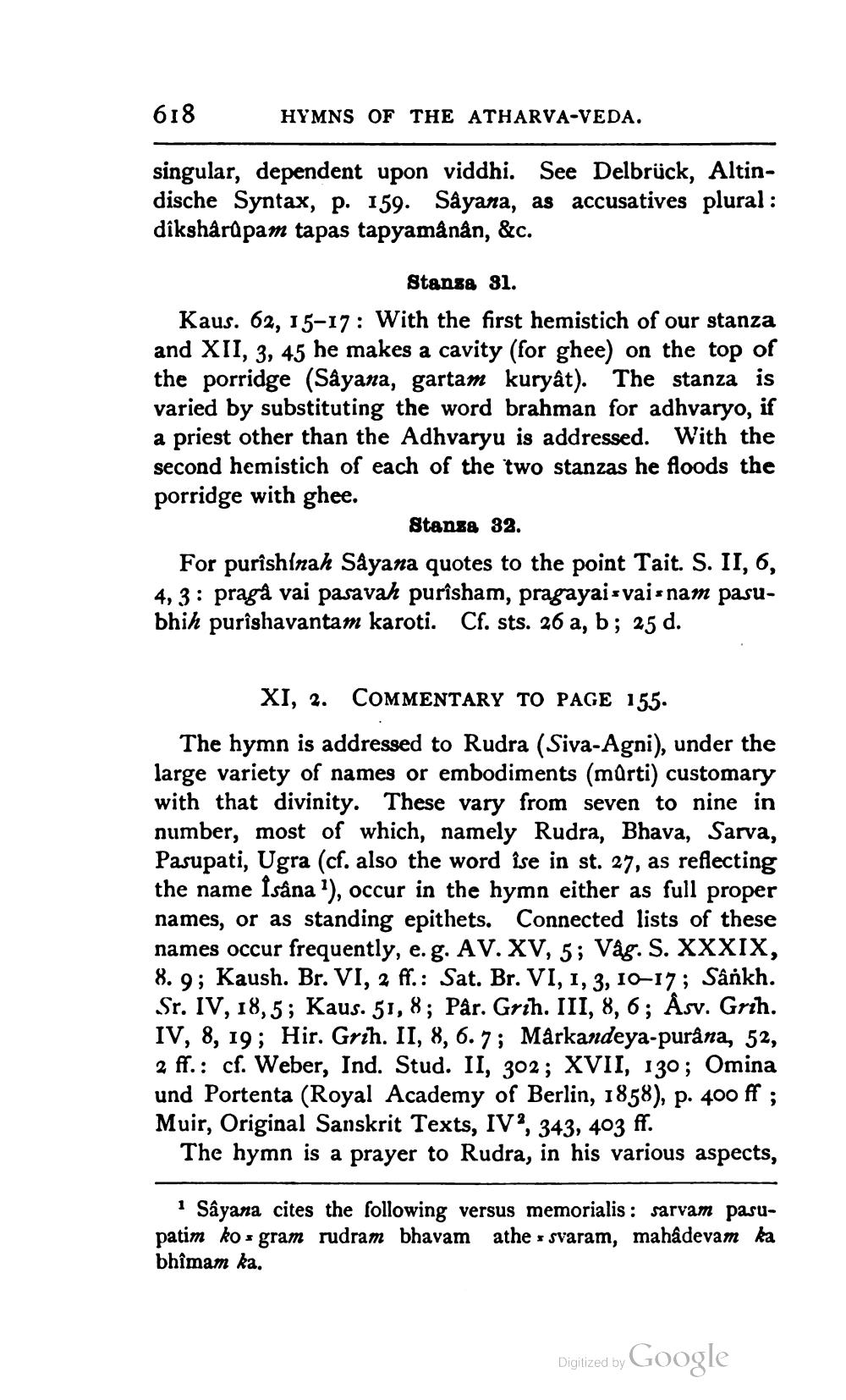________________
618
HYMNS OF THE ATHARVA-VEDA.
singular, dependent upon viddhi. See Delbrück, Altindische Syntax, p. 159. Sâyana, as accusatives plural: dîkshårupam tapas tapyamânân, &c.
Stanza 31.
Kaus. 62, 15-17: With the first hemistich of our stanza and XII, 3, 45 he makes a cavity (for ghee) on the top of the porridge (Sâyana, gartam kuryât). The stanza is varied by substituting the word brahman for adhvaryo, if a priest other than the Adhvaryu is addressed. With the second hemistich of each of the two stanzas he floods the porridge with ghee.
Stanza 32.
For purîshinah Sâyana quotes to the point Tait. S. II, 6, 4,3 pragâ vai pasavah purîsham, pragayai-vai-nam pasubhih purîshavantam karoti. Cf. sts. 26 a, b; 25 d.
XI, 2.
COMMENTARY TO PAGE 155.
The hymn is addressed to Rudra (Siva-Agni), under the large variety of names or embodiments (mûrti) customary with that divinity. These vary from seven to nine in number, most of which, namely Rudra, Bhava, Sarva, Pasupati, Ugra (cf. also the word ise in st. 27, as reflecting the name Isâna 1), occur in the hymn either as full proper names, or as standing epithets. Connected lists of these names occur frequently, e. g. AV. XV, 5; Våg. S. XXXIX, 8.9; Kaush. Br. VI, 2 ff.: Sat. Br. VI, 1, 3, 10-17; Sânkh. Sr. IV, 18,5; Kaus. 51, 8; Pâr. Grih. III, 8, 6; Åsv. Grih. IV, 8, 19; Hir. Grth. II, 8, 6. 7; Mârkandeya-purâna, 52, 2 ff. cf. Weber, Ind. Stud. II, 302; XVII, 130; Omina und Portenta (Royal Academy of Berlin, 1858), p. 400 ff; Muir, Original Sanskrit Texts, IV2, 343, 403 ff.
The hymn is a prayer to Rudra, in his various aspects,
1 Sâyana cites the following versus memorialis: sarvam pasupatim ko gram rudram bhavam athe - svaram, mahâdevam ka bhîmam ka.
Digitized by
Google




